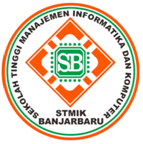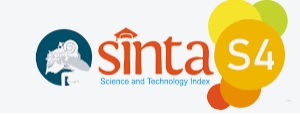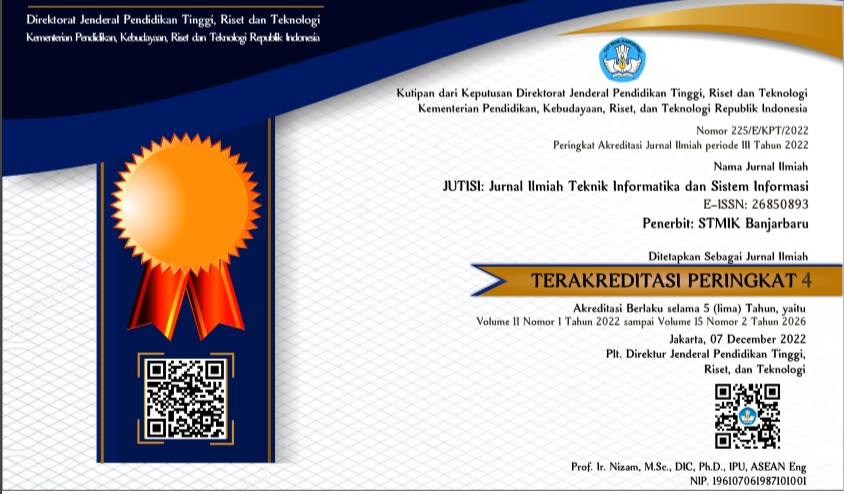Perancangan Model Manajemen Pengetahuan dalam Konteks Penyedia Jasa Konsultan TI: Studi Kasus PT XYZ
Abstract
Knowledge management is a function that has a significant role in the business processes of an organization to ensure that the organization is able to benefit from the knowledge resources it has. This research aims to identify the knowledge management process carried out by PT XYZ. By using a contingency factor analysis theory approach, this research tries to provide a comprehensive illustration of the elements related to the knowledge management process carried out at PT XYZ. Based on this identification, this research also tries to formulate recommendations for improvement to overcome the obstacles found in the knowledge management practices carried out by PT XYZ. The research results show that the knowledge management process of socialization for knowledge discovery and direction for knowledge application is a knowledge management process that needs to be developed further at PT XYZ. This research provides a theoretical contribution regarding how factors that influence an organization can determine the need for a knowledge management process. The practical contribution of this research is recommendations for developing and improving the knowledge management process for subsequent implementation.
Keywords: Knowledge management; Knowledge sharing; Knowledge transfer; Contingency factors
Abstrak
Manajemen pengetahuan merupakan salah satu fungsi yang memiliki peran signifikan dalam proses bisnis suatu organisasi untuk memastikan organisasi tersebut mampu memperoleh manfaat dari sumber daya pengetahuan yang dimiliki. Penelitian ini bertujuan untuk melakukan identifikasi proses manajemen pengetahuan yang dilakukan oleh PT XYZ. Dengan menggunakan pendekatan teori contingency factor analysis, penelitian ini mencoba untuk memberikan ilustrasi secara menyeluruh mengenai elemen-elemen yang terkait dengan proses manajemen pengetahuan yang dilakukan di PT XYZ. Berdasarkan identifikasi tersebut, penelitian ini juga mencoba untuk merumuskan rekomendasi perbaikan untuk mengatasi hambatan-hambatan yang ditemukan dalam praktik knowledge management yang dilakukan oleh PT XYZ. Hasil penelitian menunjukan bahwa proses pengelolaan pengetahuan socialization untuk knowledge discovery dan direction untuk knowledge application sebagai proses pengelolaan pengetahuan yang perlu untuk dikembangkan lebih lanjut di PT XYZ. Penelitian ini memberikan kontribusi teoritis mengenai bagaimana faktor-faktor yang berpengaruh terhadap suatu organisasi dapat menentukan kebutuhan proses pengelolaan pengetahuan. Kontribusi praktikal dari penelitian ini adalah rekomendasi pengembangan dan perbaikan proses pengelolaan pengetahuan untuk diterapkan selanjutnya.
Keywords
References
R. S. Irma Becerra-Fernandez, "Organizational Knowledge Management: A Contingency Perspective," Journal of Management Information Systems, vol. 18, no. 1, pp. 23-55, 2001.
A. Banerjee, et al. An attempt at explicating the relationship between knowledge, systems and engineering. In Proceedings of the 11th Innovations in Software Engineering Conference. 2018, pp. 1-11).
A. Kleebaum et al. Decision knowledge triggers in continuous software engineering. In Proceedings of the 4th International Workshop on Rapid Continuous Software Engineering, 2018, pp. 23-26.
I. Nonaka, "The knowledge-creating company," Harvard Business Review, vol. 85, (7-8), pp. 162-194, 2007
G. Turchetti and E. Geisler, "The nature of knowledge and the platform and matrix solutions in the design of knowledge management systems," Journal of Management and Governance, vol. 17, no. 3, pp. 657-671, 2013.
B. Kump, J. Moskaliuk, U. Cress, & J. Kimmerle. “Cognitive foundations of organizational learning: Re-introducing the distinction between declarative and non-declarative knowledge,” Frontiers in psychology, vol. 6, p. 1489, 2015.
R. Herwansyah, “Importance of internalization of tacit knowledge sharing in project management case in XYZ finance”. ACM International Conference Proceeding Series, 2020. Pp.1-5.
R. Masadeh et al, "The role of knowledge management infrastructure in enhancing job satisfaction: A developing country perspective," Interdisciplinary Journal of Information, Knowledge, and Management, vol. 14, pp. 1-25, 2019.
I. Shehabat, "The role of knowledge management in organizational performance and gaining sustainable competitive advantage," In Proceedings of the 2020 Asia Service Sciences and Software Engineering Conference, 2020, pp. 133-139.
O. T. K. Nguyen et al, "The moderating effect of perceived environmental uncertainty and task uncertainty on the relationship between performance management system practices and organizational performance: evidence from Vietnam," Production Planning & Control, vol. 34, no. 5, pp. 423-441, 2023.
J. Birkinshaw, R. Nobel and J. Ridderstrale, "Knowledge as a Contingency Variable: Do the Characteristics of Knowledge Predict Organization Structure?" Organization Science (Providence, R.I.), vol. 13, no. 3, pp. 274-289, 2002
T. L. Ju, C. Li and T. Lee, "A contingency model for knowledge management capability and innovation," Industrial Management + Data Systems, vol. 106, no. 6, pp. 855-877, 2006.
Van der Vegt, S. Gerben, and O. Janssen, "Joint Impact of Interdependence and Group Diversity on Innovation," Journal of Management, vol. 29, no. 5, pp. 729-751, 2003.
S. Holmes, and R. Bond, “The Chatbot Usability Questionnaire”, 2019, [Online]. https://www.ulster.ac.uk/research/topic/computer-science/artificialintelligence/projects/cuq [Diakses: 4 Desember 2024]
A. Joshi, S. Kale, S. Chandel, and D.K. Pal. “Likert scale: Explored and explained”, British journal of applied science & technology, vol. 7, no. 4, pp. 396-403, 2015.
H. Alkharusi, “A descriptive analysis and interpretation of data from likert scales in educational and psychological research”, Indian Journal of Psychology and Education, vol. 12, no. 2, pp. 13-16, 2022.
How To Cite This :
Refbacks
- There are currently no refbacks.











